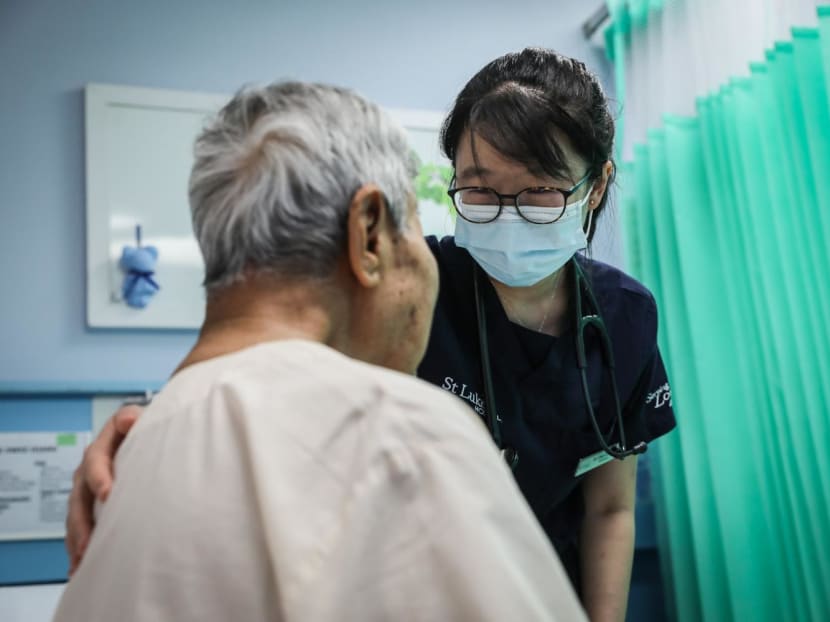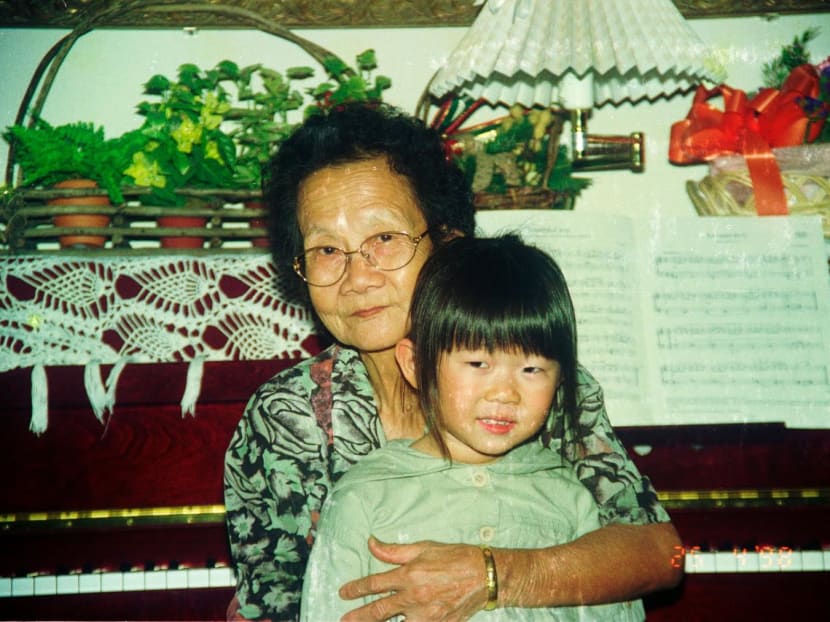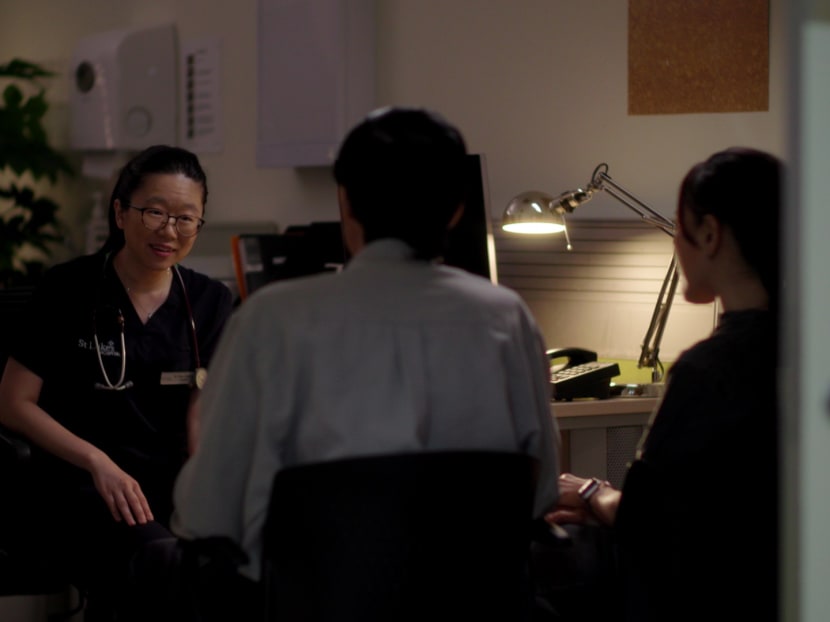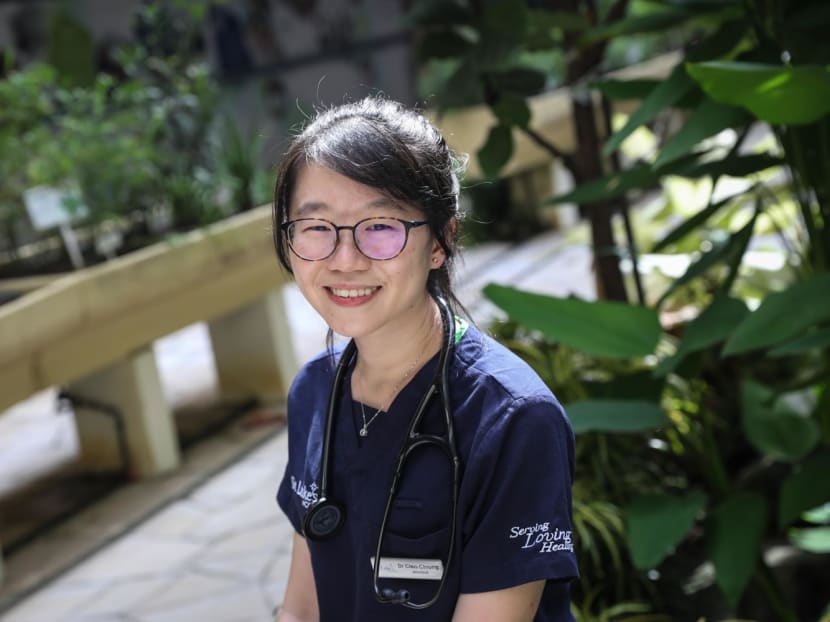6 things you need to know if your loved one has dementia
SINGAPORE — After a dementia diagnosis, not only do patients have to grapple with what is to come, their families suffer as well when their loved ones lose the ability to think, remember, reason and go about their day-to-day activities.

Dr Cleo Chiong (pictured), 29, a family physician and registrar at St Luke’s Hospital, gives some insights into how to interact with and care for dementia patients.
- In Singapore, around one in 10 people aged 60 and above are living with dementia
- A doctor from St Luke’s Hospital talks about her first-hand experience of watching her grandmother change due to dementia
- She lists six key items that families need to know about the disease
- This is so they may learn to better process and care for dementia patients
- Caregivers, too, need to watch for stress and burnout, she said
SINGAPORE — After a dementia diagnosis, not only do patients have to grapple with what is to come, their families suffer as well when their loved ones lose the ability to think, remember, reason and go about their day-to-day activities.
In Singapore, around one in 10 people aged 60 and above are living with dementia, a general term used to describe a group of symptoms affecting cognitive abilities severe enough to interfere with daily life.
With an increased life expectancy in an ageing population, it is estimated that there may be more than 150,000 people with dementia by 2030.
Dr Cleo Chiong is a 29-year-old family physician and registrar at St Luke’s Hospital whose work involves managing patients with dementia. She understands what it is like to watch a loved one with the disease gradually fade away — that the stress and guilt can be overwhelming.
Dr Chiong was in her teens when her late paternal grandmother was diagnosed with Alzheimer’s disease, the most common cause of dementia.
From a loving caregiver who looked after her from the time she was a baby, the grandmother started becoming easily irritable, agitated and aggressive.
A regret that Dr Chiong has is not knowing how to express her love for her grandmother who suffered memory loss and became increasingly dependent on others. A teenager at the time, she did not fully understand the disease and symptoms.
“I learnt a lot from that experience, which means we made a lot of mistakes back then. There are some things I wish we had not said to her, like ‘Nai nai (paternal grandma), why are you like this? Why are you being so difficult?’,” she recalled.
“As my grandmother’s cognitive health declined, I think what she needed the most from us was the love we could give her.”

Her personal experience has made Dr Chiong a strong advocate for this group of patients and their caregivers. Many dementia patients and families she sees are those who are already struggling with challenging symptoms, which was why they were referred to a doctor.
“My family’s experience made me feel strongly about caregiver support. Because I’ve gone through it, I know their struggles,” she said, adding that she used to feel guilty, thinking that she had not done enough for her grandmother.
“In hindsight, I now realise that everybody becomes a caregiver at some point for the first time — it is a learning process.”
Dr Chiong will make an appearance in St Luke’s Hospital’s charity film named Always, Mother. It premieres online on the hospital’s YouTube channel on Oct 28, to raise awareness of what families and caregivers of people with dementia go through and the challenges they face.
The interactive film allows viewers to put themselves in the shoes of the lead character and choose various caregiving options available for a mother who has dementia. The story and outcome differs, depending on what the audience chooses.

Greater understanding and knowledge of dementia is crucial when caring for a loved one with the disease.
Here, Dr Chiong highlighted six things that everyone should know about dementia.
1. IT IS NOT A NORMAL PART OF GETTING OLDER
With age, it is normal to experience some changes in mental abilities. For example, older adults may take longer to process information, pick up the latest technology or occasionally forget things.
However, memory loss and confusion associated with dementia are not part of normal ageing.
A telling sign of dementia is when the person loses his ability to function as he normally does and this interferes with his regular activities.
Dr Chiong said: “In general, normal ageing should not result in functional loss. They may be forgetful here and there but you should not notice that they can’t do the things they used to be able to do before.
“For example, if your granny cannot prepare red packets containing money for festive occasions anymore or keeps making mistakes when paying for her purchases — that’s a big sign that it may not be normal ageing.”
2. MEMORY LOSS IS JUST ONE OF MANY SYMPTOMS
Memory loss is the most well-known dementia red flag. However, it is not the only symptom.
Symptoms vary with each patient and the stage of the disease.
Dr Chiong said that family members may first notice signs such as the person having difficulties in carrying out more complex tasks related to managing their medications, finances and work, for example.
“You may start noticing deficits in the way they function.
“They may not be able to multitask, coordinate things as well as before, or have problems dressing appropriately, like buttoning up properly,” she said, adding that every patient is different.
As the disease affects parts of the brain that controls mood, personality and behaviour, the person may behave in ways that are different from their old self.
Other psychological symptoms may include sleep changes, paranoia and delusions.
Dr Chiong recalled how her grandmother’s personality and behaviour changed drastically as the dementia progressed.
“Previously, she was very independent, handled everything at home and took care of all of us.
“Later on, there were many things she said and did that did not make sense, like she would accuse us of things we did not do or she would throw away our items.”
As the disease progress and symptoms become more severe, patients will eventually need help with their daily activities such as showering, eating and dressing.
In the more advanced stages, patients may experience more severe personality and behavioural changes, and have more noticeable gaps in memory. They will also require constant care.
“As my grandmother’s cognitive health declined, I think what she needed the most from us was the love we could give her.Dr Cleo Chiong on the importance of being gentle with dementia patients”
3. THERE ARE DIFFERENT TYPES OF DEMENTIA
There are many types of dementia, with Alzheimer’s disease as the most common type.
Some people get vascular dementia, which is often associated with a series of mini strokes or conditions that block or reduce blood flow to the brain.
Dr Chiong said that in Alzheimer’s disease, the progression is usually gradual. It can go undiagnosed for many years before the disease progresses to the more advanced stages.
In vascular dementia, there tends to be a “step-wise” decline, she added. “The patient may decline suddenly, then stabilise until the next mini stroke occurs.”
Other less uncommon types of dementia include Lewy body Dementia and frontotemporal dementia, which cause brain cells in certain regions of the brain to break down at a faster rate than normal.
4. PATIENTS STILL NEED LOVE, COMFORT AND A SENSE OF BELONGING
It is easy to overlook patients’ psychological needs when they are no longer able to express themselves well, Dr Chiong said.
However, people with dementia have the same needs as everyone else, even when they no longer seem to know what is happening.

Referring to social psychologist Tom Kitwood’s model of dementia care, Dr Chiong pointed out that patients still need to feel comfort and empathy.
They need to feel love, a sense of close relationships and a feeling of belonging.
They will also desire to do things that makes them feel productive.
“From experience observing family dynamics, there is a difference between families that keep arguing with the patient and those who have accepted the condition," she said.
She emphasised that the families are not necessarily quarrelsome but they do face a lot of caregiver stress and need support.
“Patients respond very differently to a gesture of love and warmth versus a gesture of agitation."
Dr Chiong said that the interaction does not change the progression of dementia but it can affect how the patient responds, his mood and behaviour.
“When a person shouts at us in anger, for example, we will likely respond in kind. Like anyone, people with dementia will also be affected emotionally and psychologically.
“When you treat them in ways that cause them to be anxious or pressure them to do things they don’t want to, they will feel stressed and may respond in a negative way,” she said.
“Even if they don’t get what you are saying, the way you approach them can scare them, make them feel very distressed,” Dr Chiong said.
Although it can be difficult, try to support a loved one with dementia with love, care and acceptance rather than frustration.
5. SET REALISTIC EXPECTATIONS WHILE COPING WITH DECLINE
At each stage of dementia, it is important for family members to keep pace with the decline and have realistic expectations.
“Some caregivers may cope well in the early stages, but not so well when the disease goes into the moderate stages,” Dr Chiong said.
“Some people may push their loved ones to try to improve or re-learn all skills they’ve lost. And the patient may suffer because they don’t understand why they are being pushed to re-learn the skills.”
“The family member was tearful and wondered why her mother needed diapers. I could tell she was grieving, and I told her to allow herself time and space to grieve.Dr Cleo Chiong, on witnessing caregivers' sense of despair and loss”
Dr Chiong spoke of a family member she recently encountered, who had trouble accepting her mother’s condition and was trying very hard to wean her off diapers. For this particular patient, whose dementia is in the advanced stage, the likelihood of successfully weaning off diapers is very low, she said.
Not being able to accept her mother’s dementia diagnosis affected her caregiving role and in turn, the patient’s welfare.
“The family member was tearful and wondered why her mother needed diapers. I could tell she was grieving, and I told her to allow herself time and space to grieve,” she said.
“By helping to re-frame her mindset (to accept the condition), she was able to love her mother in a more effective way and now knows what to focus on when caring for her mother.”
6. CAREGIVERS NEED TO CARE FOR THEMSELVES AS WELL
Caring for someone with dementia can be all-consuming and family dynamics may be affected during this time.
Numerous studies have shown that compared to many other diseases, caregivers and family members of dementia patients face higher levels of stress and burnout.
Dr Chiong said it is important for caregivers to raise their concerns with their loved one’s doctor and healthcare team to get directed to the right form of support services.
“For example, sometimes when it gets too challenging, we may need to help the families take the patient in for respite care," she added. At St Luke’s Hospital, this is done through a doctor’s referral and on a case-by-case basis.
“This is so that we can explore the activities to engage the patient, learn about the patient’s triggers, and then teach the family how to engage the patients at home,” Dr Chiong said.
For more information about the charity film Always, Mother that will be released on YouTube and to donate, go to http://bit.ly/alwaysmother. The money raised will enable St Luke's Hospital to provide better care and assistance to less privileged patients.






